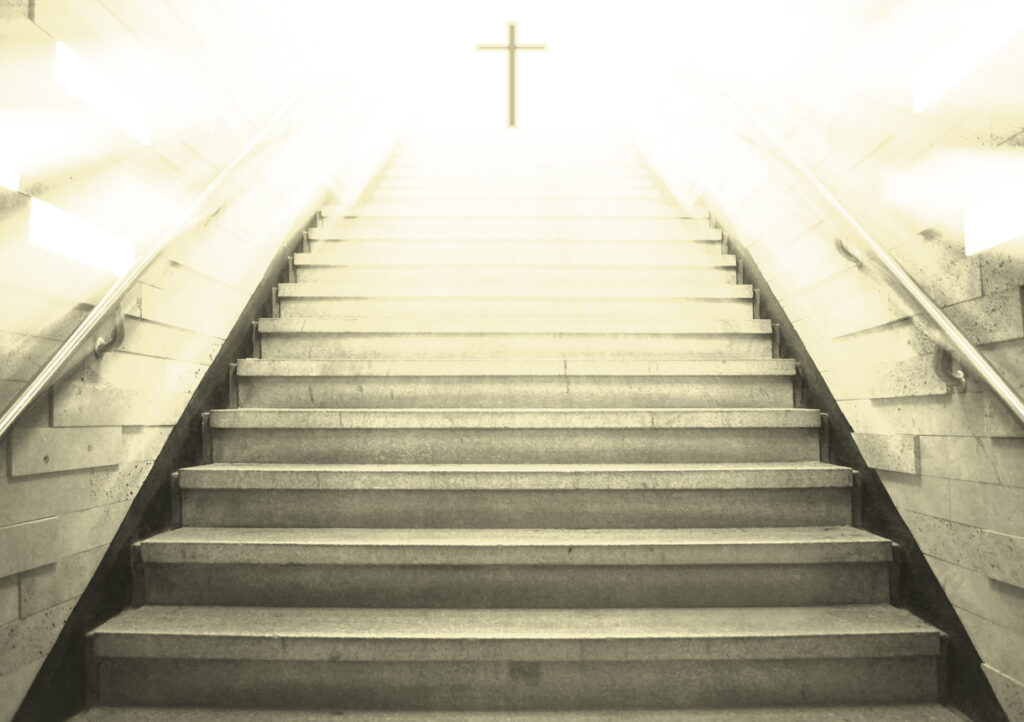Question:
I am a “cradle Catholic” of 75 years. We are taught that if one follows the teachings of the Church, is a good person and dies in the state of grace, then that person will go to heaven. But suppose some close loved ones don’t make it there? How can we be happy in heaven without them?
I asked an extraordinary minister of holy Communion, and the reply was, “Let’s hope God in his mercy forgives them, too.” But to me this seems to negate the existence of hell. Please help this confused Catholic. (Atlanta)
Answer:
The question you pose has challenged every reflective Christian for centuries. Various theories have been suggested. One is that hell exists only as a concept, not in reality, and that God will find a way to forgive everyone and bring them finally to heaven.
But that seems to conflict with Matthew 25, where Jesus pictures himself at the final judgment separating the faithful from the unfaithful, casting some into “the eternal fire prepared for the devil and his angels.”
Another suggestion is that our memories will fail us in eternity and that those who are lost will simply vanish from our minds. I’m not enthused about that theory either since it seems unlikely that, once our bodies are perfected in heaven, we will simply lose our minds. What I do feel certain about is that heaven will be better than we can ever imagine it.
In Revelation (21:4), we’re told that God “will wipe every tear from their eyes, and there shall be no more death or mourning, wailing or pain, for the old order has passed away.” I also believe, along with St. Paul in 1 Corinthians (2:9), that “eye has not seen, and ear has not heard … what God has prepared for those who love him.”
My answer to your question is that I simply don’t know — but that I’m not worried about it. It’s one of those (many) things that I’ll just have to let God figure out.
Question:
There was no blessing of candles in our parish on the feast of the Presentation. In some parishes, the faithful are permitted to bring their own candles to be blessed along with the candles that the parish is going to use.
A young priest in our parish said that the blessing was designed to be a communal event where everyone carries a small candle in procession; he said that since our parish struggles financially, we could not afford to do this. Please clarify what is proper. (Richmond)
Answer:
The feast of the Presentation of the Lord is celebrated 40 days after Christmas and marks the time when Mary and Joseph brought the infant Jesus to the Temple to be dedicated to the Lord, as was the Jewish custom for the firstborn male.
Since at least the 11th century, the blessing of candles has been a regular part of this feast. The solemnity of that blessing may vary, and it may or may not include a procession of the faithful. More often, worshippers simply hold lighted candles in their pews while the priest pronounces the blessing.
Sometimes parishes provide the candles; sometimes parishioners are encouraged to bring their own. Everyone is invited to bring their candles home, ideally to be used at times of family prayer.
In explaining this long-standing custom, Pope Benedict XVI, writing then as Cardinal Joseph Ratzinger, explained in his book “Seek That Which Is Above” that “the warm candlelight is meant to be a tangible reminder of that greater light that, for and beyond all time, radiates from the figure of Jesus.”
One of the prayers of blessing offered for the priest’s use has a particular beauty. It says: “O God, source and origin of all light, who on this day showed to the just man Simeon the Light for revelation to the gentiles, we humbly ask that, in answer to your people’s prayers, you may be pleased to sanctify with your blessing these candles, which we are eager to carry in praise of your name, so that, treading the path of virtue, we may reach that light which never fails.”
Question:
What is a good Catholic Bible, with a contemporary translation from Greek? (Albany, Oregon)
Answer:
There are several translations of the sacred Scriptures that have been approved by the U.S. Conference of Catholic Bishops for devotional use and study by Catholics; any translation that bears an imprimatur may be used for those purposes.
Your best bet is the 1986 edition of the New American Bible; that is the only translation approved for liturgical use at Masses in the United States, and so the wording would be familiar to you.
In his 1943 encyclical on Scripture study, “Divino Afflante Spiritu,” Pope Pius XII wrote: “Ought we to explain the original text which, having been written by the inspired author himself, has more authority and greater weight than even the very best translation, whether ancient or modern.”
The New American Bible follows that prescript: Composed over a period of 25 years by some 50 biblical scholars, it uses the original and oldest available texts of the sacred books — Hebrew for the Old Testament, Greek for the New Testament.

